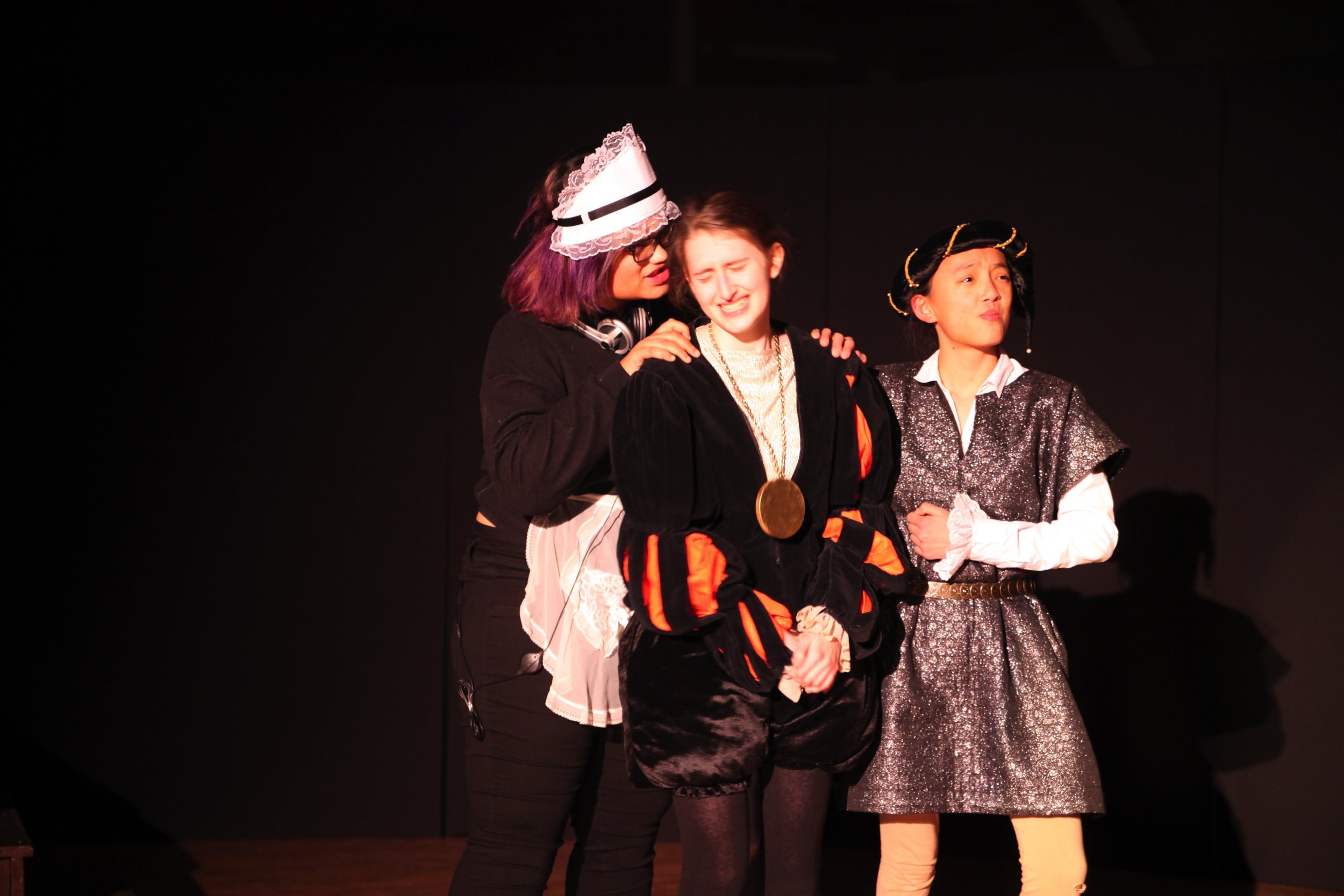Theater and the Art of Monocle-Holding: Fall Farces Performed
By Division I Media & Journalism reporter Rhys
On December 15 and 16, Meridian’s theater company produced two one act farces. One is called The Actor’s Nightmare, and the other is Black Comedy. The Actor’s Nightmare is a play about an accountant named George (played by 10th grader Piper) who finds himself backstage in a theater and forced to play multiple roles that he does not know. Black Comedy is crafted around an important meeting in an apartment, but a fuse is blown at the beginning, and the characters are in darkness. To make things worse, the owner of the apartment, Brindsley (played by 10th grader Nick) and his fiancee Carol (played by 9th grader Nadia) have “borrowed” his neighbor’s furniture without permission, and the neighbor (played by Arlo) gets back from a trip earlier than expected, so Brindsley and Carol have to get the furniture back to the other apartment without their neighbor noticing.
Not having ever been in Performing Arts and Activism (PAA) myself, I sent a few emails out to get an idea of what these plays were, and how the rehearsals worked. I interviewed one member of each cast this past weekend, Maya from The Actor’s Nightmare, and Kory from Black Comedy. As to what happens during rehearsal, Maya told me that “On most days, we will play either ‘Whoosh’ or ‘Whah,’ which are energy games. Then we play an improvisation game, and then run either specific problem scenes or the entire play.” For the first two months of rehearsal, they work in Catherine’s Humanities room, and about a month before the show, they move across the street to the Parish Hall. Kory remarked that either the entirety of his play is run, or the actors work on one scene for three hours, but “most of the time I just sit there practicing my accent, monocle holding, or doing homework.” On the week of the show, the set is put up and the actors get used to working with other technical aspects of the production, like props, costumes, lighting, and music.
I also asked the actors what they thought PAA did for the students. Maya told me that PAA teaches students acting skills, and “in general to think quickly and take on different personas in real life situations.” PAA will also teach kids timing and precision (and monocle holding), according to Kory. However, for him, PAA taught him that his hard work will pay off. As the play approached opening night, all of the actors continued to work on their respective plays, and as Kory said, all of their hard work and patience paid off.























